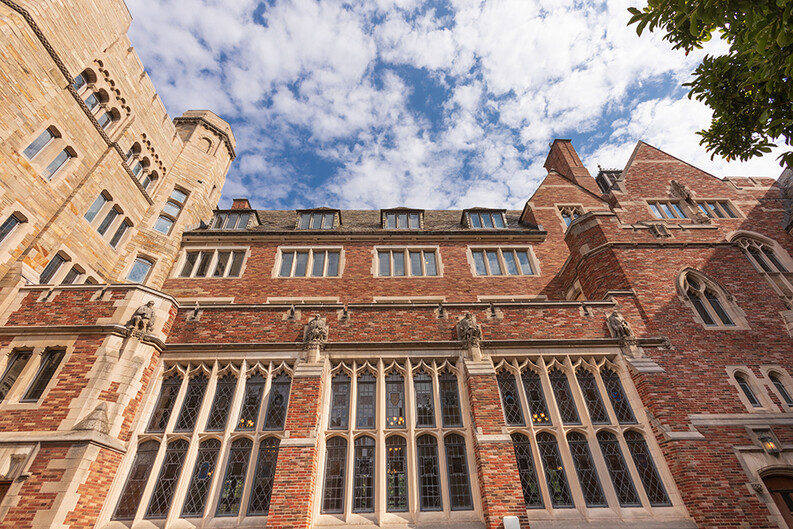MFIA Welcomes 2022-23 Clinical Fellows

The Media Freedom and Information Access Clinic4 (MFIA) at Yale Law School welcomes Rachel Davidson and Kelsey Eberly as its new clinical fellows.
Davidson and Eberly will oversee student work, supervise cases, and work towards the clinic’s mission of promoting transparency and accountability. The two bring a wealth of experience to MFIA from varied areas of law and other fields.
Eberly joins the clinic from a career in animal law, having worked at the Animal Legal Defense Fund for more than seven years. Prior to that, she worked in an editorial and communications capacity at several firms in the San Francisco Bay Area.
Davidson moves to New Haven from New Orleans, where she clerked for Judge Lance Africk at the United States District Court for the Eastern District of Louisiana. Previously, she has worked for the American Civil Liberties Union of Massachusetts.
Both see free speech and media law as central to their legal careers.

Davidson first encountered First Amendment and media law during her first year at Harvard Law School, when she took a class on mass media law taught by David McCraw, deputy general counsel at the New York Times and an occasional MFIA collaborator. She was also involved with democracy and rule of law clinic held in partnership with Protect Democracy, another MFIA collaborator. The experience cemented her love for this area of law and her conviction to dedicate her career to it.
Eberly began her legal journey at UCLA Law School, motivated by an interest in animal law. She then worked for several years in that field, including at the Animal Legal Defense Fund. During this period, she was exposed to a range of free speech issues in animal law. She began to gravitate towards such cases and eventually made them a cornerstone of her practice. Among other matters, Eberly represented nonprofit organizations in First Amendment challenges to laws criminalizing undercover investigations of animal facilities, helped activists defeat frivolous lawsuits filed to silence their speech, and worked on several open records and Freedom of Information Act (FOIA) cases.
As clinical fellows, Eberly and Davidson will cover a broad range of matters at MFIA.

“Because free speech issues involve a diverse array of topic areas — including, for example, criminal justice reform and national security — you get to work with and learn from journalists, activists and scholars who are passionate about what they do,” Davidson said.
Davidson’s docket this semester will feature several FOIA matters, including a new case concerning the State Department’s alleged habitual delays in responding to FOIA requests5 and MFIA’s ongoing efforts to secure the release of government records on the capture and alleged torture of Guantanamo detainee Abu Zubaydah6.
Meanwhile, Eberly will supervise the clinic’s ongoing constitutional challenge to a Texas law criminalizing drone photography7. After the clinic succeeded in striking down the law last semester, the defendants appealed to the United States Court of Appeals for the Fifth Circuit. Eberly will work with the student team to defend the win and preserve journalists’ right to engage in drone photography in Texas. She also joins the clinic’s ground-breaking defamation case on behalf of Georgia election workers8 targeted by far-right news site Gateway Pundit.
Davidson and Eberly are both excited to take on an active pedagogical role at MFIA.
“Clinics really helped me build my confidence in my capabilities when I was in law school,” Davidson said. “This was one of the main reasons I was interested in working at MFIA.”
Eberly added, “It’s really exciting to work with students and hear how they want to move these cases forward. There’s such an emphasis at Yale and at MFIA to have the students drive the work of the clinics and that’s really great to be a part of.”
Eberly and Davidson see their time at MFIA as part of a larger commitment to using law for the public interest. Eberly put it this way: “I would love to use the experiences I’m having in the clinic and the knowledge I’m gaining about media law, the First Amendment and FOIA to keep advocating for broader social justice issues.”
The Media Freedom and Information Access Clinic (MFIA) is a law student clinic dedicated to increasing government transparency, defending the essential work of news gatherers, and protecting freedom of expression by providing pro bono legal services, pursuing impact litigation and developing policy initiatives.


